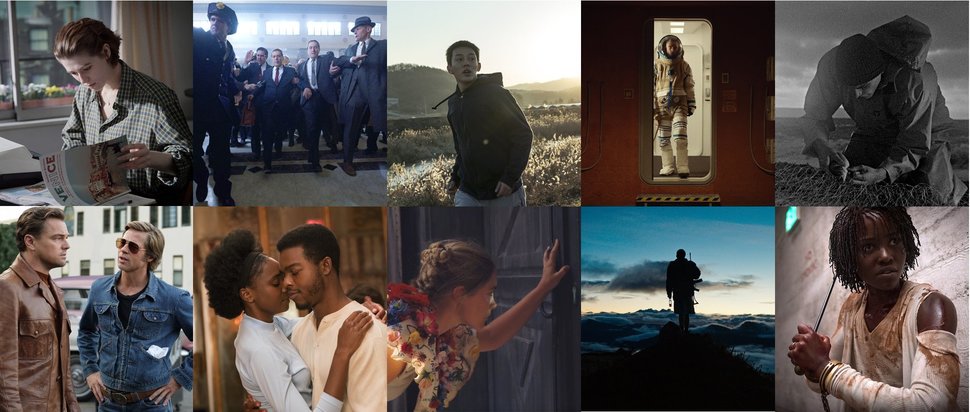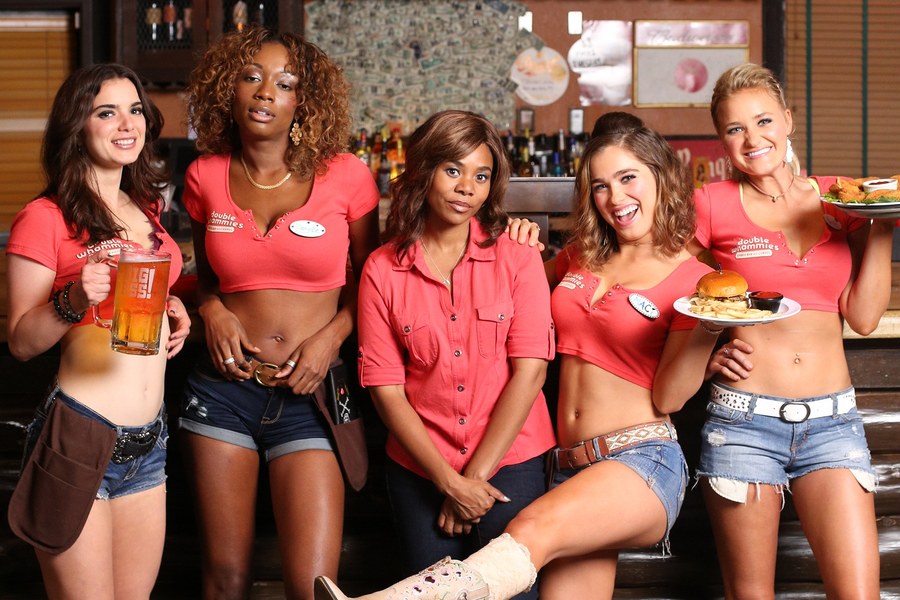The Skinny's Films of 2019
A portrait of an artist as a young woman and an epic about some ageing gangsters top our films of the year poll. Elsewhere, there's the story of convicts in space, class tensions in a Cornwall fishing village and the reimaging of a Hollywood tragedy
30. Zombi Child
Dir. Bertrand Bonello
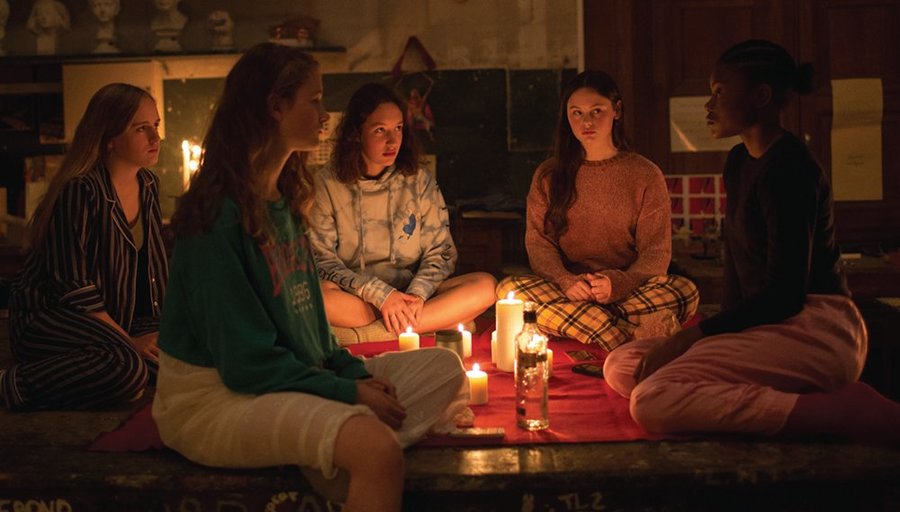
After the frustrations of Bertrand Bonello’s blithe attitude towards pretty compelling ideas in 2016’s Nocturama, his latest film has such a precise engagement with its subject – the appropriation of culture on a mass scale as well as an intimate one – that it might as well have come from a different director. Bonello builds to violent outbursts of zombie rage and then pulls back before any blood can spill. The score sounds like a plinky, minimalist parody of John Carpenter’s scores. [Thomas Atkinson]
29. Ray & Liz
Dir. Richard Billingham
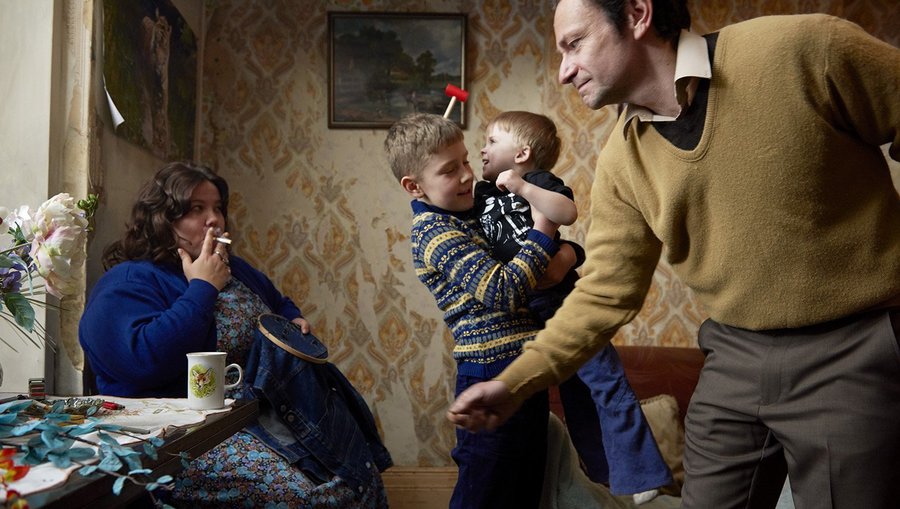
Celebrated British photographer Richard Billingham moves to moving-image with first feature Ray & Liz, and its portrait of his own unruly family is as meticulously framed and bursting with detail as his stills. [Patrick Gamble]
28. Knives Out
Dir. Rian Johnson
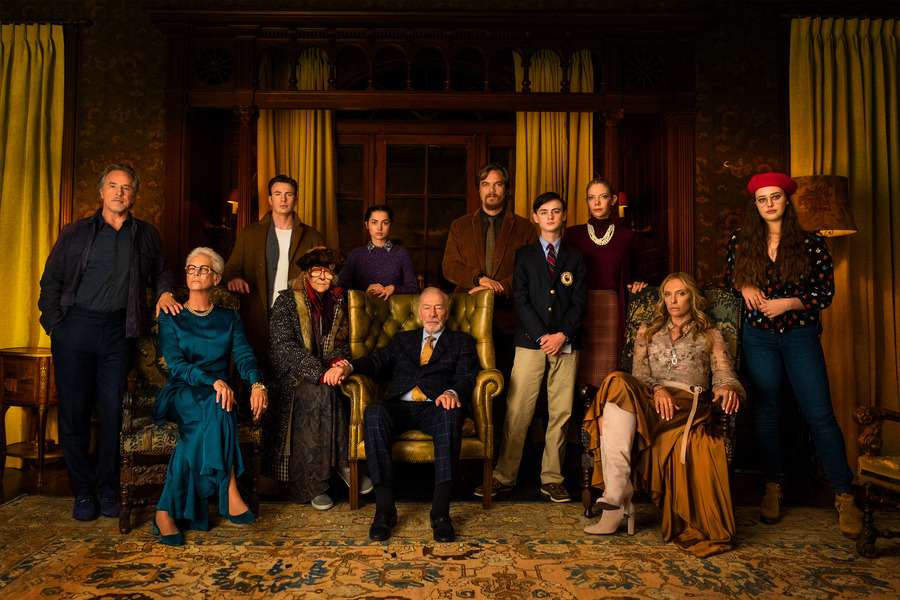
Daniel Craig has a great time as Benoit Blanc, a hammy detective with a Frank Underwood-esque Southern drawl called to the Thrombey mansion after the suspicious death of patriarch Harlan Thrombey (Plummer). A crime caper with an allegory for modern America at its core, Knives Out is a fast and flashy crowd-pleaser. [Caitlin Quinlan]
27. Can You Ever Forgive Me?
Dir. Marielle Heller
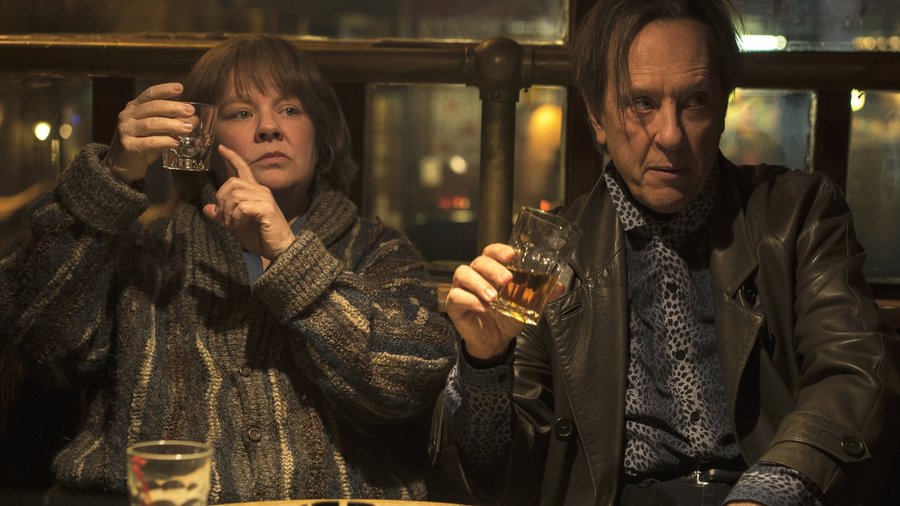
Melissa McCarthy has never been better than in this remarkable true-life tale based on the memoirs of writer-turned-literary forger Lee Israel. Against a backdrop of bookish landmarks and gay bars in winter-chilled New York, director Marielle Heller delicately balances whip-smart acerbic wit and tragedy, as we are plunged into the inner life of a troubled writer. It’s a melancholic, smart, cautionary tale about a woman who decided if you can’t make it, fake it. [Joseph Walsh]
26. Hustlers
Dir. Lorene Scafaria
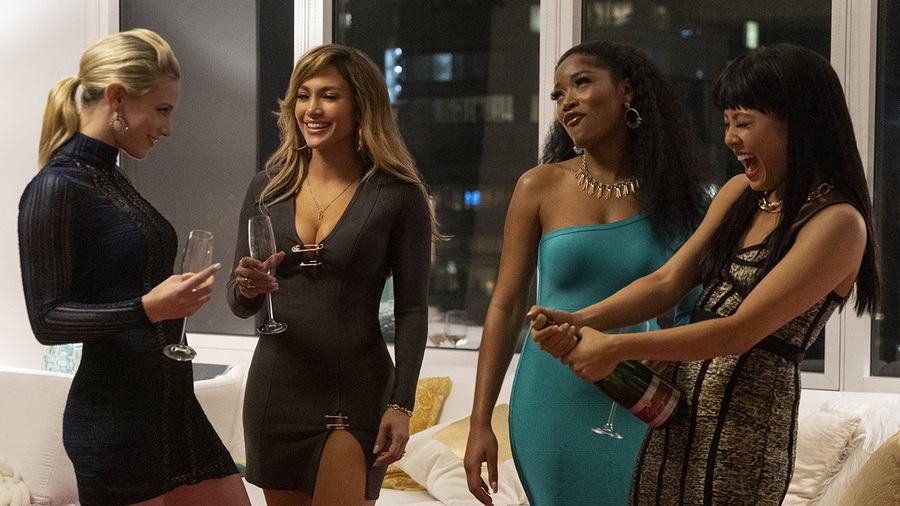
Inspired by a New York Magazine article, this deliciously enjoyable true-life drama centres on a deliriously charming performance by Jennifer Lopez as a strip club dancer who discovers a more direct way of getting cash from Wall Street sleazebags' pockets. Not since the days of Gentlemen Prefer Blondes and How to Marry a Millionaire has women's morally dubious pursuit of wealth been so much fun. [Jamie Dunn]
25. Support the Girls
Dir. Andrew Bujalski
Regina Hall is on ferocious form as the general manager of Double Whammies, an independent Hooters-style sports bar, in Andrew Bujalski’s Support the Girls. Featuring terrific supporting turns from Haley Lu Richardson and Shayna McHayle, the film tracks Hall’s character over a turbulent 24-hour period during which she is forced to deal with a wannabe burglar, catastrophic television outages and the challenging lives of her young employees. Support the Girls doesn’t lack for warmth or humour, but Bujalski delivers a stinging critique of racist working practices and business cultures that rely upon a sense of ‘family’ to exploit their workers. [Tom Grieve]
24. John Wick Chapter III: Parabellum
Dir. Chad Stahelski
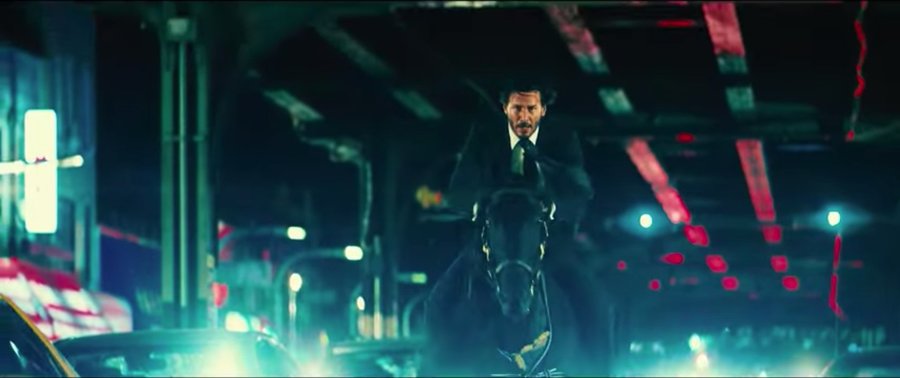
Even more so than its predecessors, Chapter III of the John Wick saga is relentless, only letting up for a few seconds to let you laugh at the absurdity and invention of its latest piece of ultraviolence. Like its protagonist, you'll end the movie breathless and exhausted, but in the best possible way. [JD]
23. Sorry We Missed You
Dir. Ken Loach
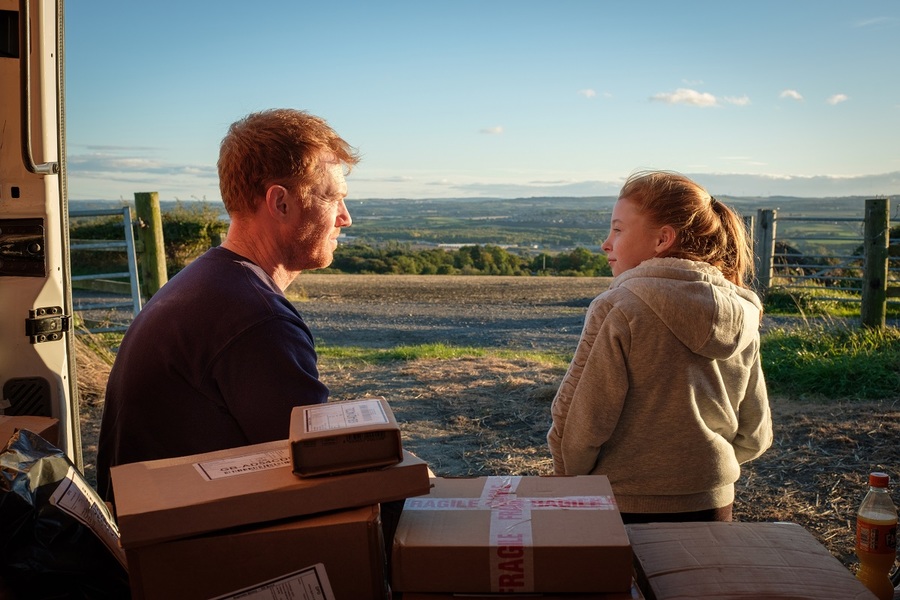
Sorry We Missed You is the latest incendiary work from Ken Loach, a filmmaker who refuses to let up after more than half a century chronicling the injustices heaped upon society’s dispossessed. Here, his ire turns again to unfair employment practices, a familiar theme given a botched, modern-day facelift in the form of zero-hours contracts and the gig economy. In less capable hands, Sorry We Missed You would be run of the mill, through-the-wringer stuff. But its sermonising is cloaked in an involving human story and there are shafts of humour that pierce the overriding gloom. [PG]
22. The Farewell
Dir. Lulu Wang
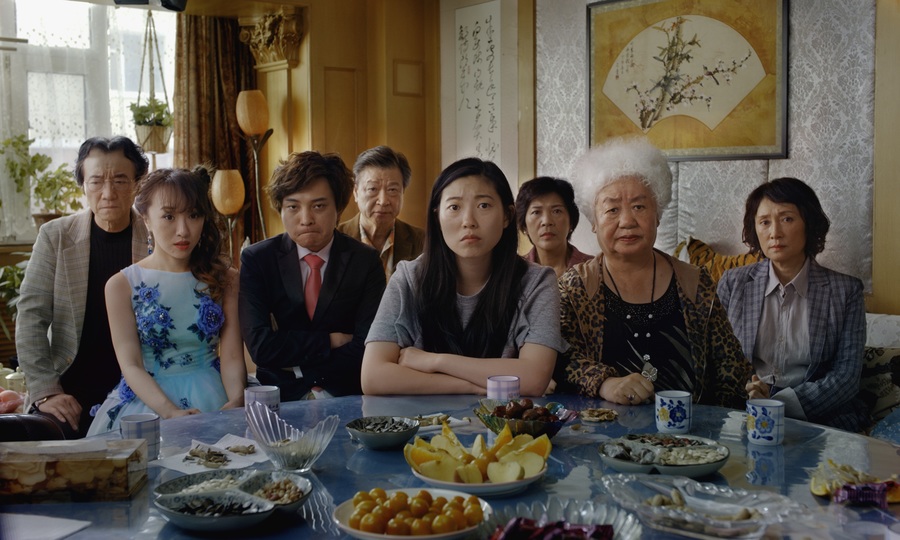
Even if The Farewell was not a work of autobiography, it would still be a highly personal picture for Chinese-American director Lulu Wang. Broadly speaking, her new film is about the very tension that comes from being both Chinese and American, and how the self-preservation of assimilation can be uncomfortable to reconcile with the strength of one’s heritage. But it’s one particular tradition that focusses Wang’s concerns into something sharper, at once probingly intimate and appealing in a broad, crowd-pleasing fashion. [TA]
21. Happy as Lazzaro
Dir. Alice Rohrwacher
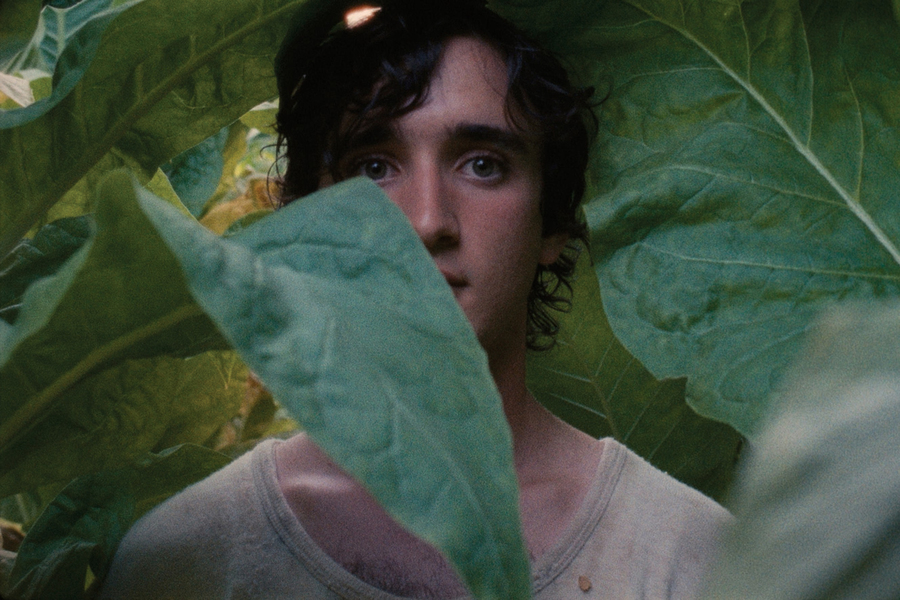
Alice Rohrwacher’s drama about a village of peasant farmers cut off from society spills from poetic realism to dreamy fantasy to tell a spellbinding story that’s a potent allegory for the pervasive evils of modern capitalism. This is a thrilling, major work where the political and the poetic intertwine, and the collision makes both elements all the more powerful. [JD]
20. The Last Black Man in San Francisco
Dir. Joe Talbot
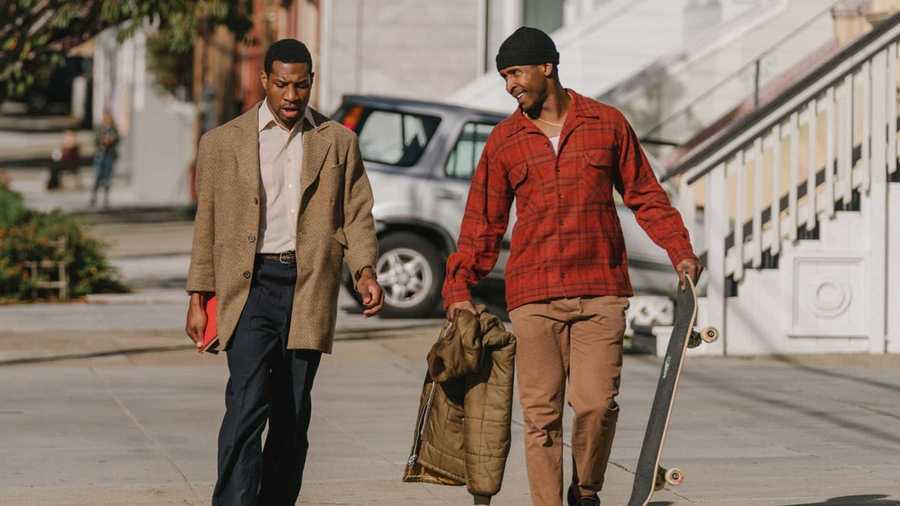
On the surface, The Last Black Man in San Francisco is a love story between a man and his childhood home, a visual requiem to a city that has found itself under the encroaching boot of wanton capitalism and construction. But it's also a gorgeous and melancholy film that explores themes of friendship, community, black masculinity, poverty and privation. [Adam Stafford]
19. The Favourite
Dir. Yorgos Lanthimos
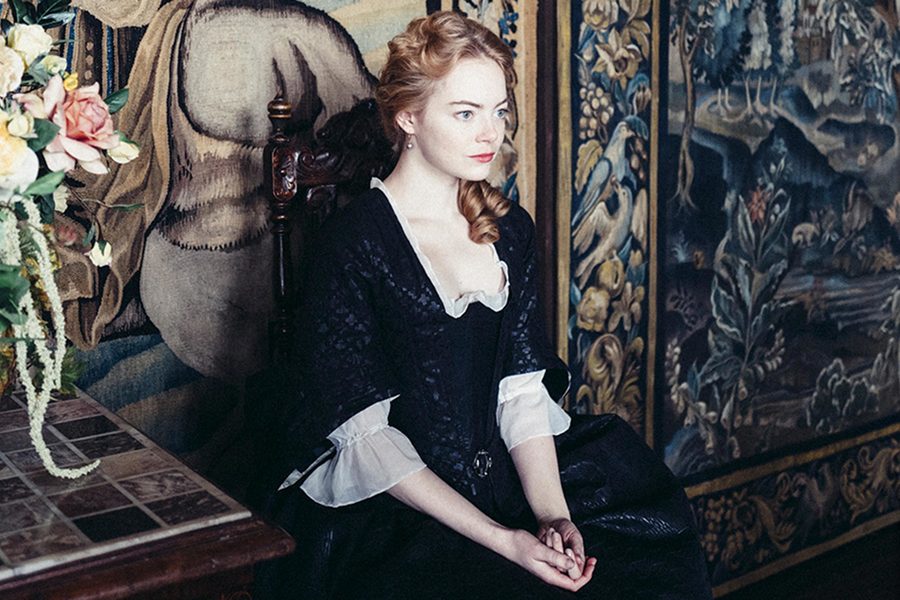
Ducks race and rabbits frolic on palace floors in Yorgos Lanthimos’ masterful period romp The Favourite, perhaps the Greek director’s most accessible – and entertaining – film. The regal madness is anchored by three career-best performances from Stone, Weisz and Colman. Each of their characters is trying to overcome tragedy, and this time it’s not played for awkward laughs. Maybe Lanthimos does have a heart after all. [Iana Murray]
18. Atlantics
Dir. Mati Diop
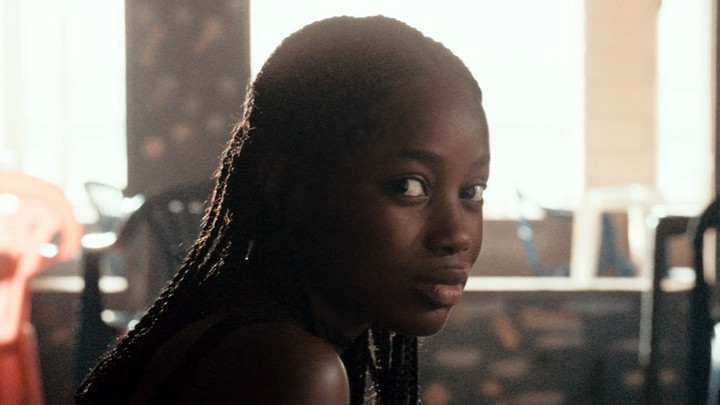
Mati Diop's feature debut Atlantics feels like the work of an experienced master. It’s the stunning simplicity with which the film delivers its ultimate belief – love and solidarity are stronger than death – that leaves a mark. As if to announce herself as a world-class talent, from the first scene of Diop’s debut (the first frame, even), she displays a lightness of touch in the face of immense concepts like gentrification and romance, and an ability to compress worlds of passion and frustration into single images. [TA]
17. Ad Astra
Dir. James Gray
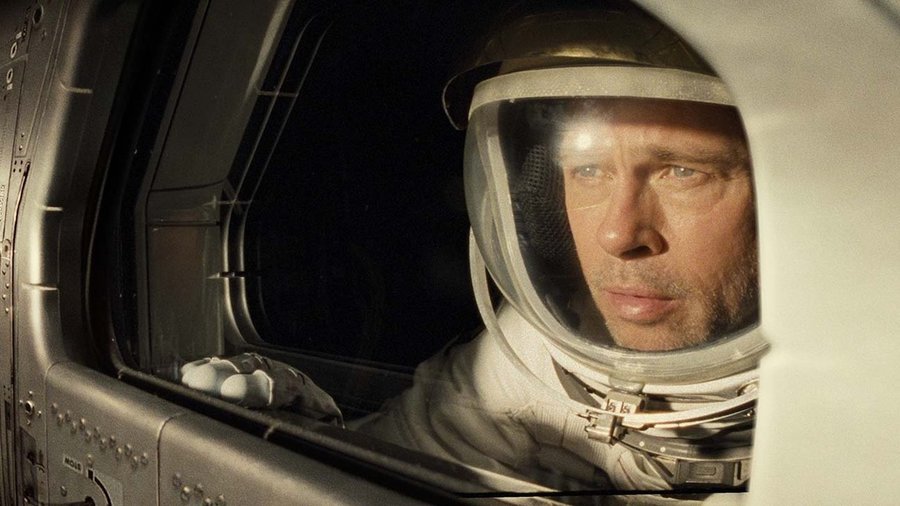
James Gray takes us on a breathtaking sci-fi journey in his latest film Ad Astra, with Brad Pitt impressing in a restrained performance as an emotionally fractured man wrestling with daddy issues. [JW]
16. Transit
Dir. Christian Petzold
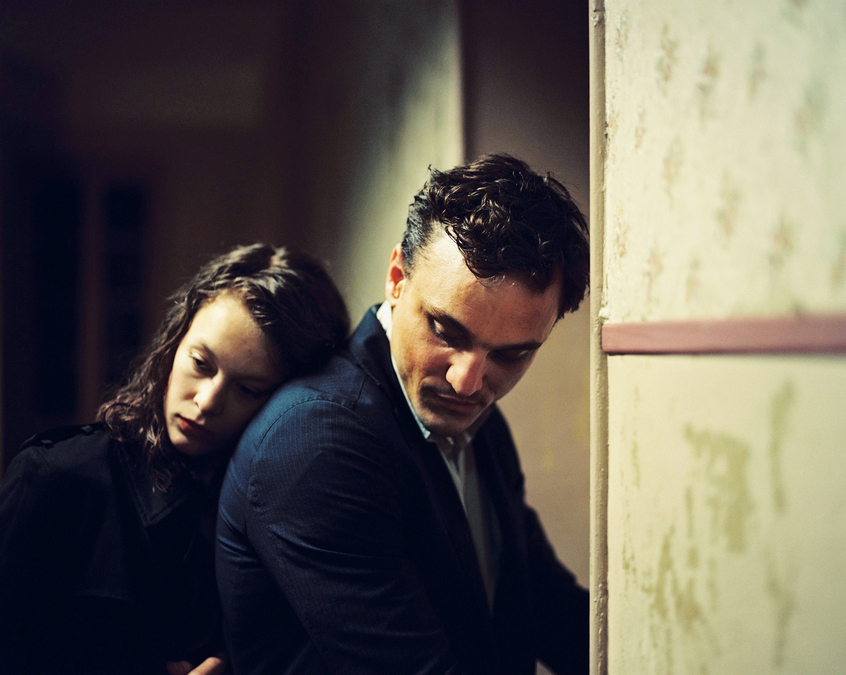
In Christian Petzold's inventive adaptation of Anna Seghers' Marseille-set WWII novel, past and present fold in on themselves to draw parallels between the fear and paranoia of Nazi-occupied Europe and the treatment of refugees in Europe today. [JD]
15. Beats
Dir. Brian Welsh
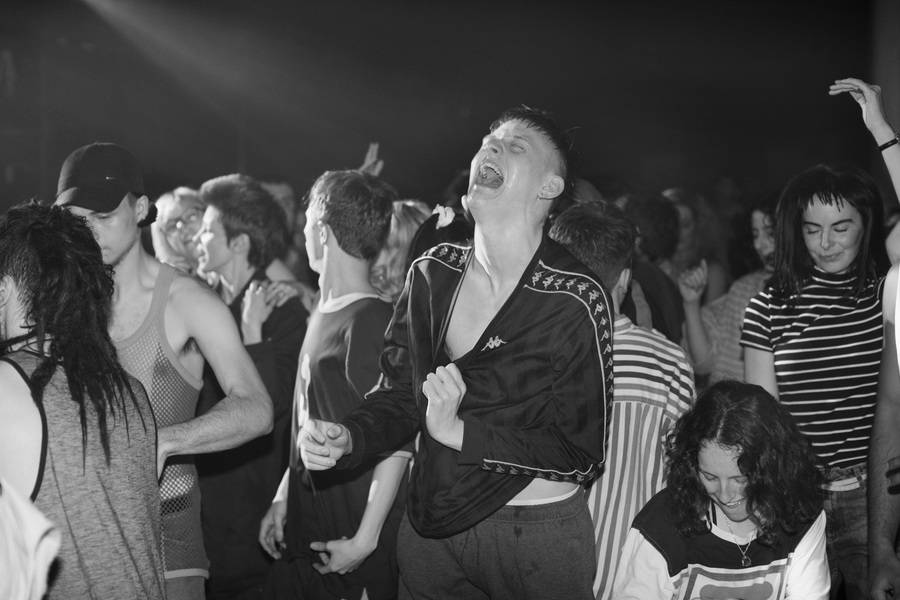
The ecstasy of friendship and, well, ecstasy are celebrated in Brian Welsh’s freewheeling coming-of-age film Beats, which vividly transports us to a rundown council estate in West Lothian in 1994, where the UK’s illegal rave scene is burnt down to the filter and under attack from the Tory government’s Criminal Justice Bill that outlaws parties where the music is “predominantly characterised by the emission of a succession of repetitive beats”. [JD]
14. Madeline's Madeline
Dir. Josephine Decker
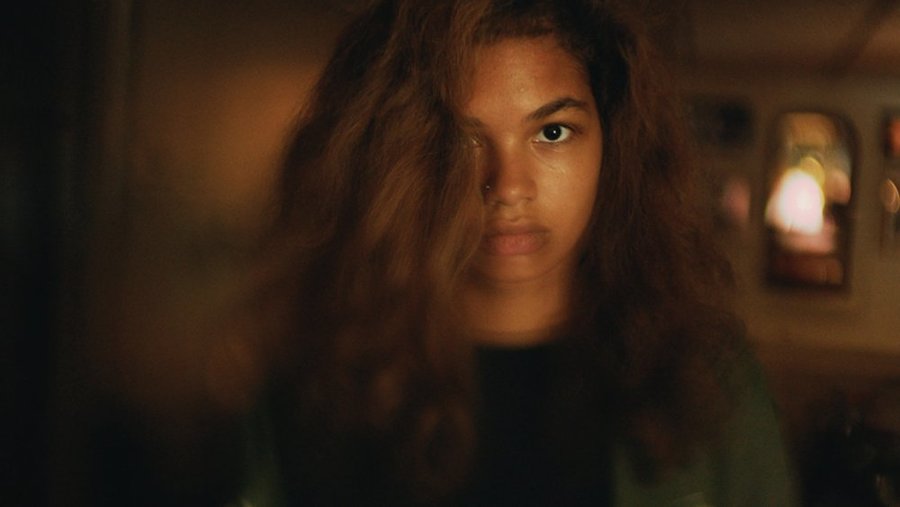
Director Josephine Decker brings her brand of incisively, dissonantly experimental cinema to her most satisfying narrative yet. Exploring the fine lines between mental illness and creativity, tutelage and exploitation, this is a bravura investigation into the relationship between a young performing arts student and her mentors. A star is born in Helena Howard, who swings for the fences in the leading role, with equally emotionally daring support from seasoned pros like Molly Parker and Miranda July. [Ian Mantgani]
13. Booksmart
Dir. Olivia Wilde
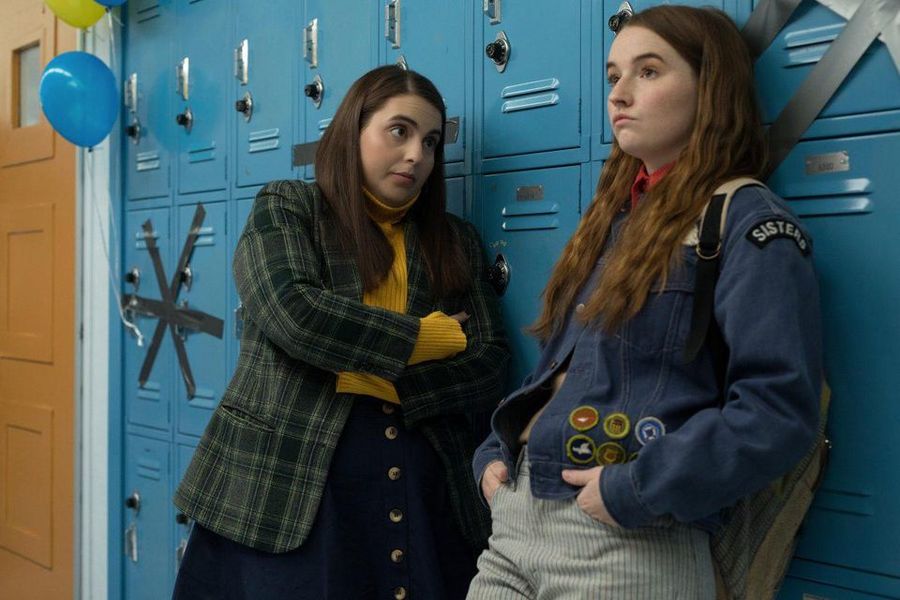
From minute one, Booksmart comes charging in with an infectious energy. With Olivia Wilde in the director’s chair for her debut feature, she uses all the techniques in the book to heighten the drama in the overblown world of adolescence. For best friends Molly (Beanie Feldstein) and Amy (Kaitlyn Dever), the most earth-shattering discovery is that their peers have found the school-life balance they never could. Booksmart cleverly deconstructs teen movie tropes to add dimensions to the characters of the film’s eclectic ensemble cast, defining people in the process as more than just the labels we put on them. [Iana Murray]
12. Eighth Grade
Dir. Bo Burnham
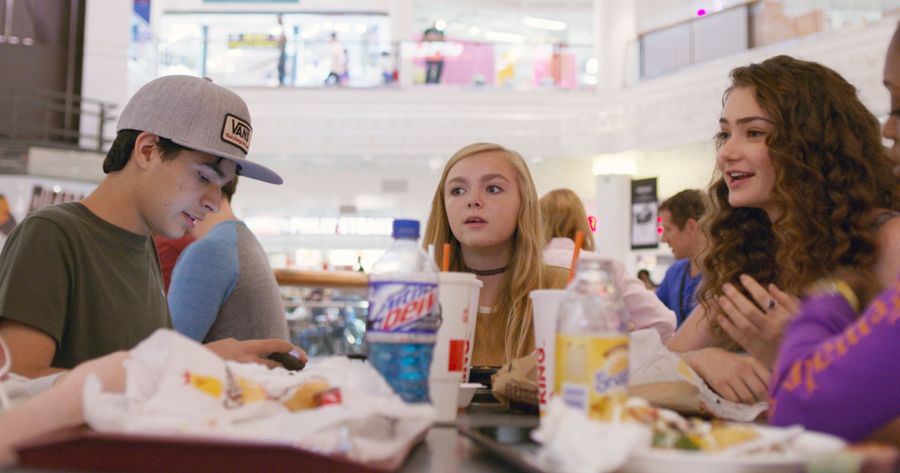
Adolescence is hell in this spiky but tender debut from US standup Bo Burnham, which follows a painfully awkward 13-year-old on her last few days of middle school, with high school looming. Burnham has a knack for putting us in his protagonist's awkward skin: a pool party full of cooler, more confident kids becomes a walking nightmare, while every appearance of Kayla’s crush sends the image into a dopey swoon. Anna Meredith's swirling electronic score taps us into our protagonist's psyche too, amping up the feeling of anxiety one moment, acting as the teen's faux-triumphant theme music the next. [JD]
11. Marriage Story
Dir. Noah Baumbach
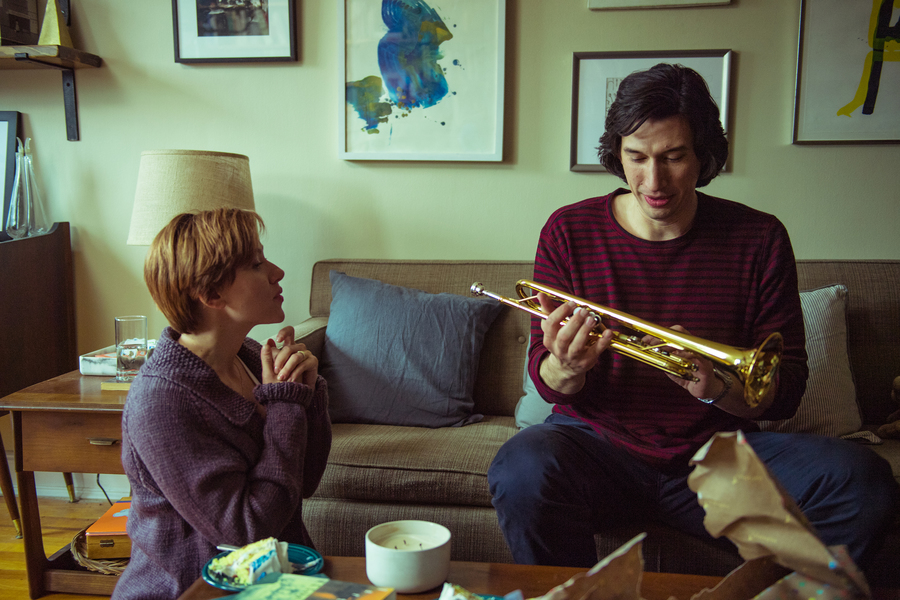
Noah Baumbach loves a divorce movie. His third feature, The Squid and the Whale, a bitter little pill of a comedy, was based on his parents' acrimonious break-up and now he's mining his own divorce – from actor Jennifer Jason Lee in 2013 – for this rather more tender but no less devastating film on the subject. As a showcase for the talents of Adam Driver and Scarlett Johansson, the film could hardly be better, but it's also Baumbach's most accomplished work as a director. Rather than a series of jagged short scenes punctuated by a pithy punchline at the expense of its obnoxious characters, Marriage Story has a symphonic quality, the tempo modulating to the rhythm of its rather more sympathetic protagonists. [JD]
10. Us
Dir. Jordan Peele
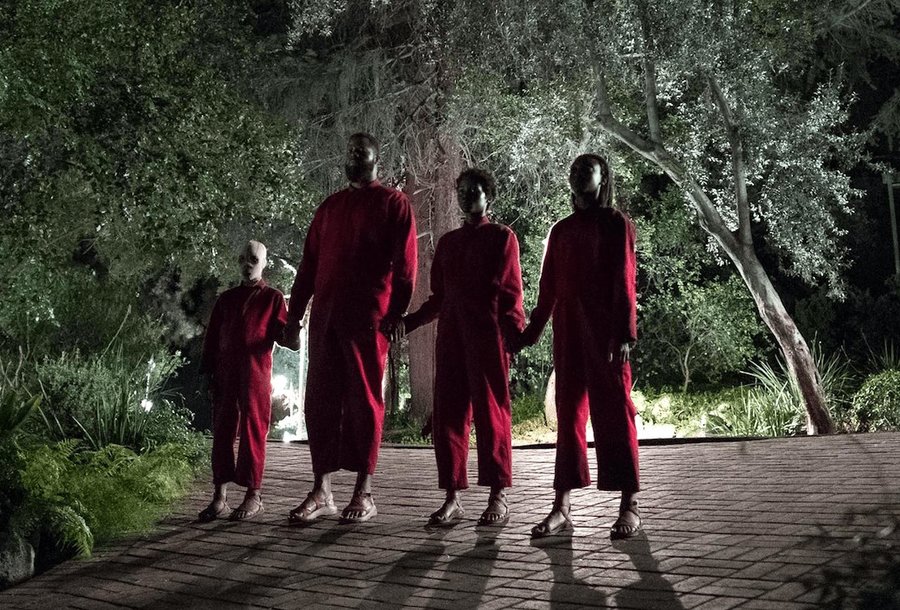
We see double in Us, Jordan Peele’s next after Get Out. It would always be difficult to follow a film which drilled so keenly to the pulp of a particular moment, but in Us, Peele didn’t try to replicate the past and instead doubled up his cast. Us taps into fears of inner shadows, and the murky depths of human behaviour, while wrapping the subtext in irresistible horror tropes like a fairground after dark, appealing to audiences on (at least) two levels. [Eleanor Capaldi]
9. Monos
Dir. Alejandro Landes
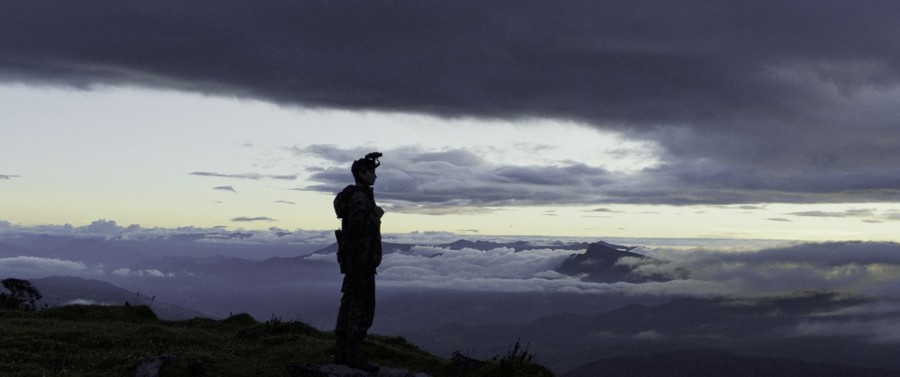
The fog of war is thrillingly expressed in Alejandro Landes’ hallucinatory war thriller Monos, which envelops us in the day-to-day of eight teen soldiers holding an American engineer hostage high on a mountain ridge. These adolescent grunts have fearsome monikers like Rambo, Boom Boom and Bigfoot but their babyfaces can’t live up to the billing. Giving hormonal teens machine guns and too much responsibility proves disastrous and in the process this potent allegory for the madness of war conjures up some of the most indelible sounds (courtesy of Mica Levi) and images of the year. [JD]
8. Midsommar
Dir. Ari Aster
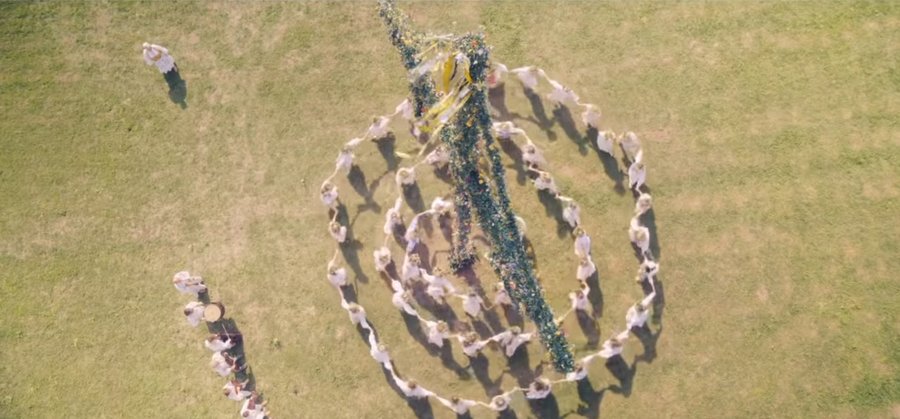
Ari Aster’s sophomore feature is not as smart or deep as it wants to be; this does not stop Midsommar from being a genuinely disturbing, fantastically funny film that has rightly become an internet favourite. The impropriety of its sun-soaked visuals somehow makes sense of this most extreme cinematic break-up. Pugh’s star turn cements her as one of her generation’s finest actors, and Reynor, Poulter, and Harper ensure that the supporting cast remain memorable as they meet some thoroughly nasty ends. [Carmen Paddock]
7. If Beale Street Could Talk
Dir. Barry Jenkins
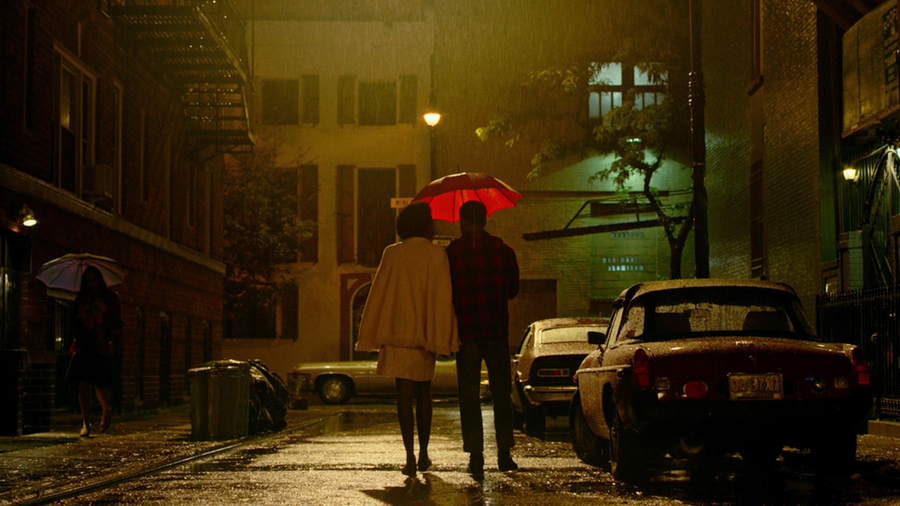
Barry Jenkins’ film begins with a young woman visiting a young man in jail and telling him that they will soon be parents. The camera cranes in and time seems to slow so that we can catch each new emotion bursting into existence across their expressions – his deadened astonishment exploding into brilliant joy, her tightly-coiled terror collapsing into relief. Even as it plumbs the darkest parts of humanity, the whole of If Beale Street Could Talk carries this feeling of lightness. [Ross McIndoe]
6. Once Upon a Time in Hollywood
Dir. Quentin Tarantino
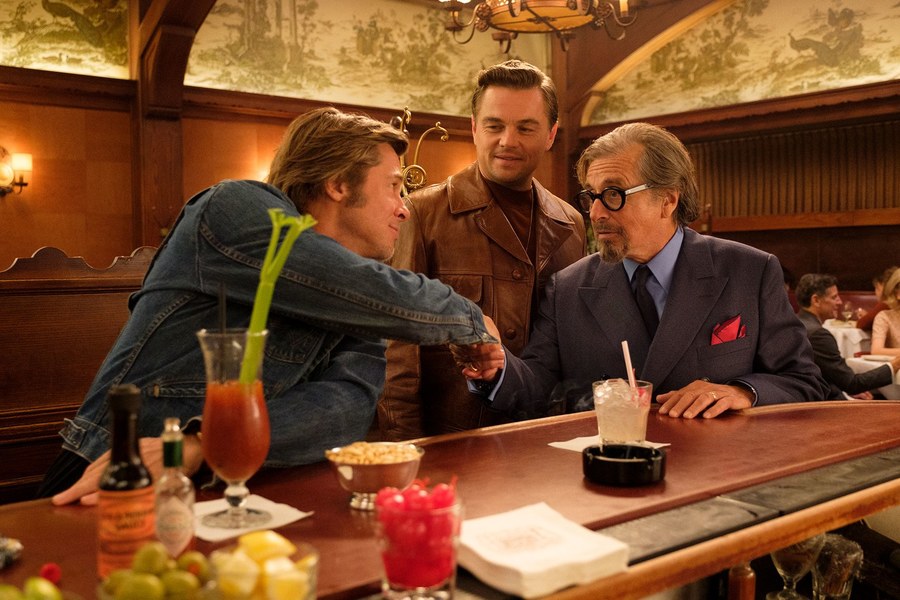
What may initially come across as a fawning hymn for the images and sounds of a bygone era reveals itself to be its writer-director’s most earnest, restrained and vulnerable work since 1997's Jackie Brown. Concerned with ageing, the sore reality of failure, and accepting one’s own mediocrity, it’s a film that understands the allure of the subjective truth. A melancholic air pervades it but glimmers of hope emerge, even though we’re all too aware that the sands of time can never pass in the way we wish. [Josh Slater-Williams]
5. Bait
Dir. Mark Jenkins
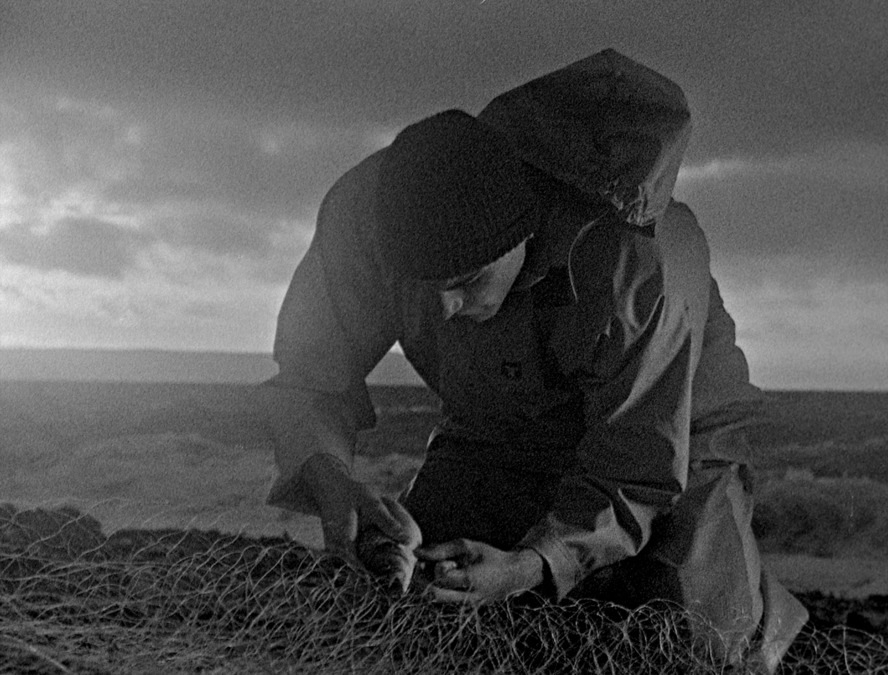
While filmmakers across the nation attempt to make sense of the country’s collective malaise and division with either upbeat corniness or dour, shapeless realism, here is a film that dares to take those divisions and use them as a razor in the cutting room. Shooting on vintage cameras in rough-hewn monochrome, and with classical editing and sound techniques, Jenkin’s film lays out Britain’s class warfare with the editing austerity of a Mexican standoff. If Alain Resnais were still alive, he’d be kissing the feet of this bright new British talent. [Thomas Atkinson]
4. High Life
Dir. Claire Denis
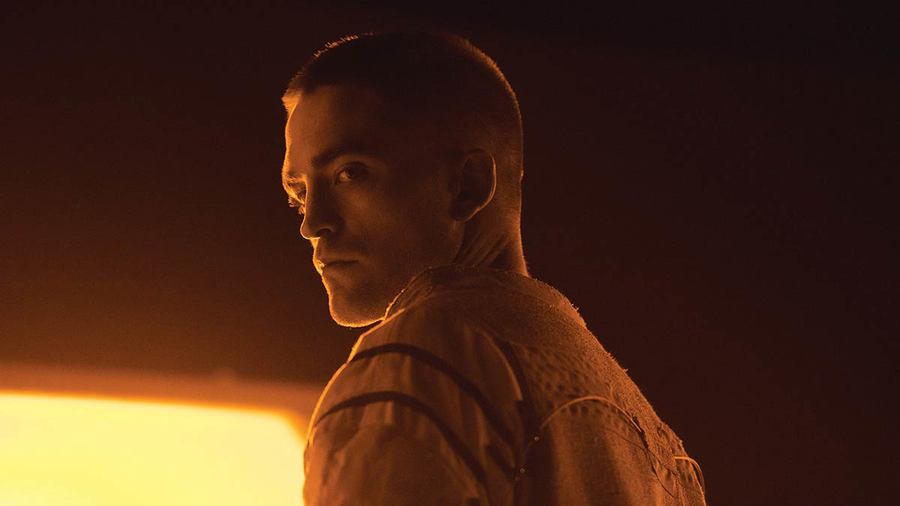
No film this year has come quite as close to the edge of madness (or serenity) as Claire Denis’ High Life. Her space film is an urgent, throbbing ache. It’s mostly about a lonely man and a baby, but it’s also a cautionary tale of a dystopian future where convicts become guinea pigs for a fertility experiment and are hurled towards a black hole. Sex, extinction and taboo are its themes, but Denis is more interested in experience than analysis. Go with it. [Katie Goh]
3. Burning
Dir. Lee Chang-dong
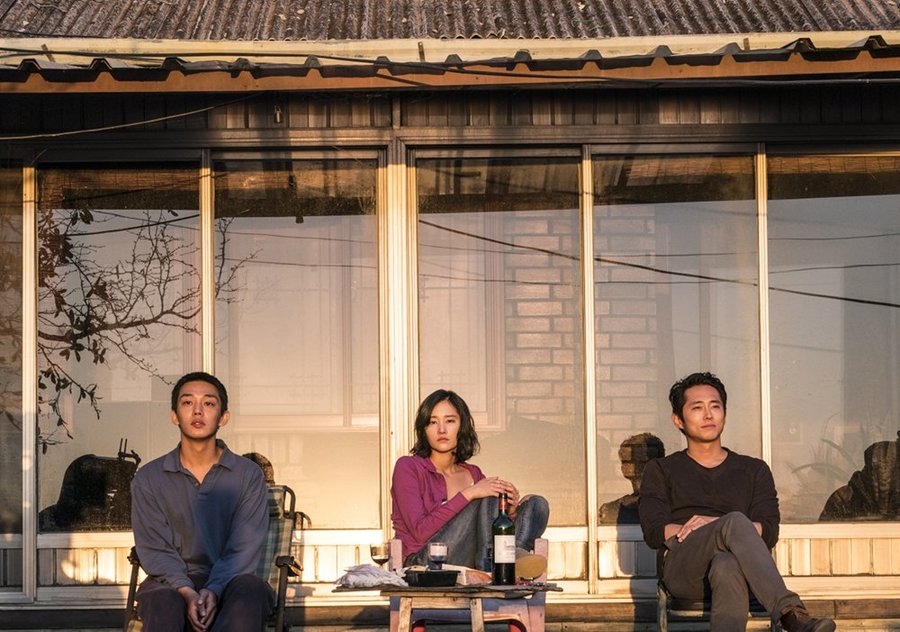
A tale of jealousy and obscure desires, Lee Chang-dong’s Burning has all the qualities you’d expect from a murder-mystery; but look closely and you’ll find something simmering below the surface. Adapted from Haruki Murakami’s short story Barn Burning, Lee’s long-awaited follow-up to 2010's Poetry shifts from romance to tragedy before settling on something far more sinister. Observing the conflict that arises when economic desperation and bruised masculinity collide, Burning is an emotionally ruthless portrait of the widening class divide that seethes and smoulders with an insidious rage. [Patrick Gamble]
2. The Irishman
Dir. Martin Scorsese
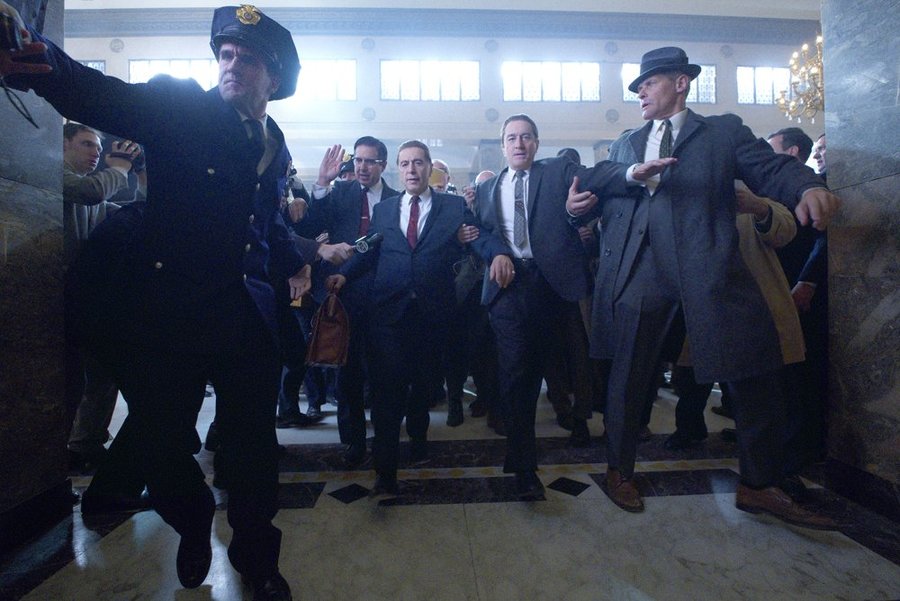
In their ninth feature together, Martin Scorsese and Robert De Niro have delivered a mournful epic that feels like a capstone and a reflection on their decades-long collaboration. The story of Frank Sheeran (De Niro), a loyal bruiser caught in the power struggle between union head Jimmy Hoffa (Al Pacino) and mob boss Russell Bufalino (Joe Pesci), The Irishman is a devastating study of an old man haunted by guilt, regret and his daughter’s reproachful gaze. Perfectly paced across 210 minutes and magnificently acted, it’s a late-career masterpiece from an artist at the height of his powers. [Philip Concannon]
1. The Souvenir
Dir. Joanna Hogg
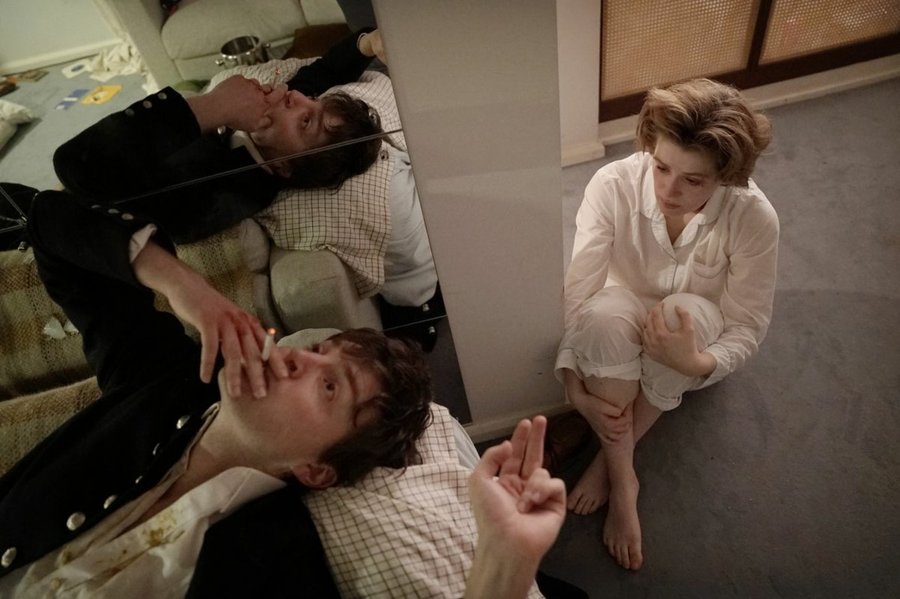
Joanna Hogg’s autobiographical portrait of the artist as a younger woman took the great British director’s rigorous observational style to a transcendent new level. With a fragile, intelligent, unaffected lead performance by Honor Swinton Byrne as a film student in the 1980s trying to get to grips with her own privilege and her relationship to an older lover with dark secrets, The Souvenir was bracing in its raw, honest depiction of coming-of-age, determination and bittersweet memory. [Ian Mantgani]
We asked twenty of our film writers to provide their top ten films of the year to compile this list – read each of their lists in full here...
